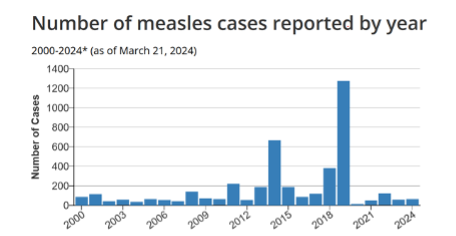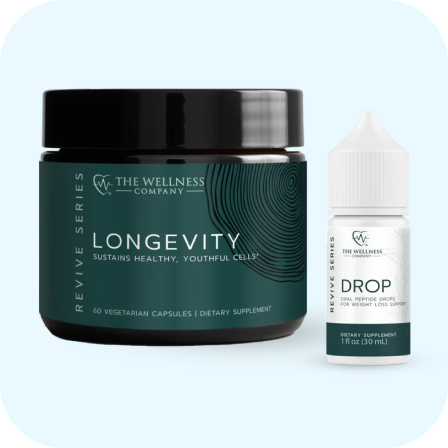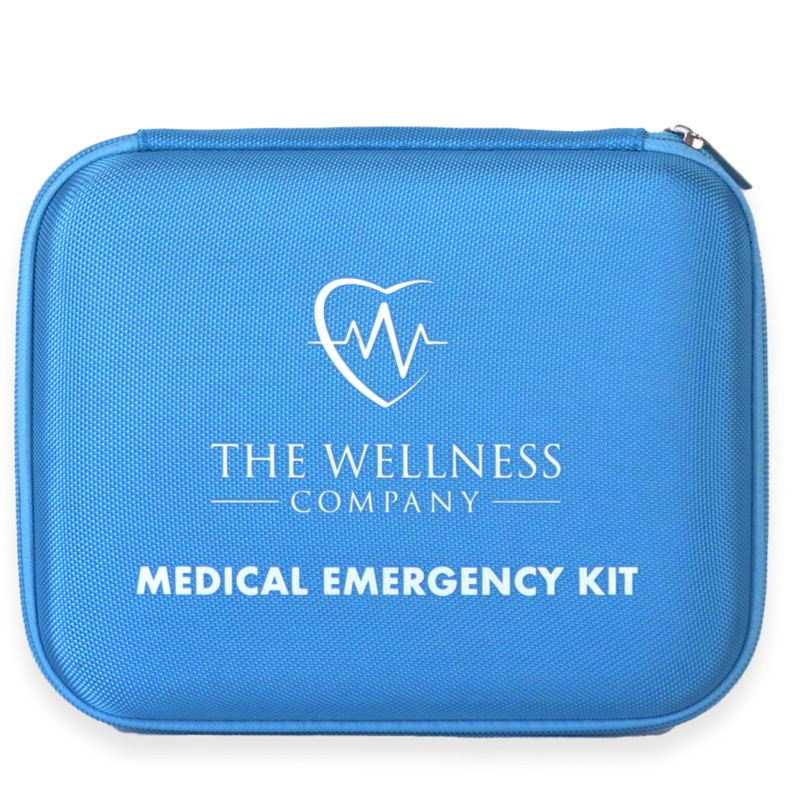Measles “Outbreak” Should We be Concerned?

On March 18 the CDC issued a health advisory that all children in the United States and those traveling internationally 6 months and older are current on MMR vaccination.
They went on to state:
“By mid-March, the case count for 2024 was higher than last year’s total, at 64 (there were 58 cases in all of 2023) In 2024, measles has been reported in 17 states, coast to coast: Arizona, California, Florida, Georgia, Illinois, Indiana, Louisiana, Maryland, Michigan, Minnesota, Missouri, New Jersey, New York, Ohio, Pennsylvania, Virginia, and Washington.
Recent totals, though, are still far below the yearlong outbreak in 2019 that saw a total of 1,274 confirmed cases across 31 states.”
Migrant camps linked to recent measles outbreak
Chicago has been especially hard hit in their migrant camps with 15 cases recorded according to the Chicago Department of Health.
What are measles?
According to the World Health Organization
- “Measles is a highly contagious disease caused by a virus. It spreads easily when an infected person breathes, coughs, or sneezes. It can cause severe disease, complications, and even death.
- Measles can affect anyone but is most common in children.
- Measles infects the respiratory tract and then spreads throughout the body. Symptoms include a high fever, cough, runny nose, and a rash all over the body.
- Symptoms of measles usually begin 10–14 days after exposure to the virus. A prominent rash is the most visible symptom.
Early symptoms usually last 4–7 days. They include:
- runny nose
- cough
- red and watery eyes
- small white spots inside the cheeks.
The rash begins about 7–18 days after exposure, usually on the face and upper neck. It spreads over about 3 days, eventually to the hands and feet. It usually lasts 5–6 days before fading.
Complications can include:
Many of these complications are symptoms of vitamin A deficiency!
- Blindness (a symptom of vitamin A deficiency)
- Severe breathing problems including pneumonia. (A vitamin A deficiency weakens the lining of the respiratory tract)
- Complications are most common in children under 5 years and adults over age 30. They are more likely in children who are malnourished, especially those without enough vitamin A or with a weak immune system from HIV or other diseases.
- Severe diarrhea and related dehydration can cause a vitamin A deficiency, leading to measles complications.
- Measles encephalitis (not vitamin A deficiency-related, is very rare)
What is vitamin A?
Vitamin A is a fat-soluble vitamin that plays a crucial role in various bodily functions. It exists in several forms, including retinol, retinoic acid, and provitamin A carotenoids (such as beta-carotene).
Retinol is the active form of vitamin A found in animal products like liver, fish, and dairy products. It is important for vision, immune function, and skin health.
Retinoic Acid: Retinoic acid is involved in cell growth, differentiation, and immune function. It is also important for the health of the skin, mucous membranes, and the lining of the digestive tract.
Provitamin A Carotenoids These are plant pigments that can be converted into vitamin A in the body. Beta-carotene is the most well-known provitamin A carotenoid and is found in fruits and vegetables, especially those that are orange or dark green. (1)
To supplement or not with Vitamin A?
In a hospital setting, the CDC recommends vitamin A supplementation for measles patients. However, outside of the hospital setting, exercise caution.
Vitamin A supplementation should only be done under the care of a qualified health practitioner. Fat-soluble vitamins (A D E K) are stored in fat cells and not excreted like their water-soluble counterparts (B vitamins, vitamin C) via urine, feces, sweat, and breathing.
How concerned should we be?
More facts on measles
- 2019 was the highest number of cases of measles in the US in recent history ay 1,274 cases
(Covid pandemic was blamed for a lack of vaccinated individuals causing an outbreak, however, the pandemic didn’t start until March 2020)
- Deaths directly related to measles (attributed to encephalitis), affect 1 out of every 1,000. Out of those who contract encephalitis, the death rate is 10-15 percent (0.010-0.015%).
- Vitamin A deficiency leads to poorer outcomes in measles outbreaks.
- Non-Hispanic Blacks and Latin Americans with Afro-Caribbean ancestry are at a higher risk of low-serum vitamin A.
To Vaccinate or Not? You Decide
Vaccination is a very personal topic and should be discussed with a trusted healthcare provider.
A study titled” Long-term immunogenicity after measles vaccine vs. wild infection: an Italian retrospective cohort study” states “Current evidence suggests that immunity after the disease is life-long, whereas the response after two doses of measles-containing vaccine declines within 10–15 years.” “While further research is needed, our study clearly showed that natural immunity is both more robust and longer lasting than vaccine immunity.” (2)
Measles virus is protective against many forms of cancer.
The measle virus protects against many forms of cancer (3)

measles virus (in the above picture)
The MeV selectively targets cancer cells and leaves non-cancerous cells alone.
Science is attempting to replicate what the wild virus does- target and kill cancer cells without harming healthy cells. However, researchers have to find different targeted therapies to permanently identify specific cancers and permanently kill them through vaccination.
There have been attempts to replicate the cancer-fighting properties of the measles virus, with some success; however, each cancer is targeted by a specific part-expression- of the virus isolated. Infection from the measles virus suggests a much broader scope of protection against many types of cancers.
Some of the cancers that the measles virus expresses protection against are:
- Glioblastoma (aggressive brain cancer)
- Ovarian cancer
- Burkitt’s lymphoma
- Myeloma
- Pancreatic
Check out our Natural Immunity Formula to get in front of this and build your immune system up to be strong and healthy for whatever may come next!
References
- Gropper, S. S., Smith, J. L., & Carr, T. P. (2017). Advanced nutrition and human metabolism. Cengage Learning.
- Francesco Paolo Bianchi, Simona Mascipinto, Pasquale Stefanizzi, Sara De Nitto, Cinzia Germinario, and Silvio Tafuri. (2020) Long-term immunogenicity after measles vaccine vs. wild infection: an Italian retrospective cohort study.
- Engeland CE, Ungerechts G. Measles Virus as an Oncolytic Immunotherapy. Cancers (Basel). 2021 Feb 1;13(3):544. doi: 10.3390/cancers13030544. PMID: 33535479; PMCID: PMC7867054.
Written by Brooke Lounsbury























